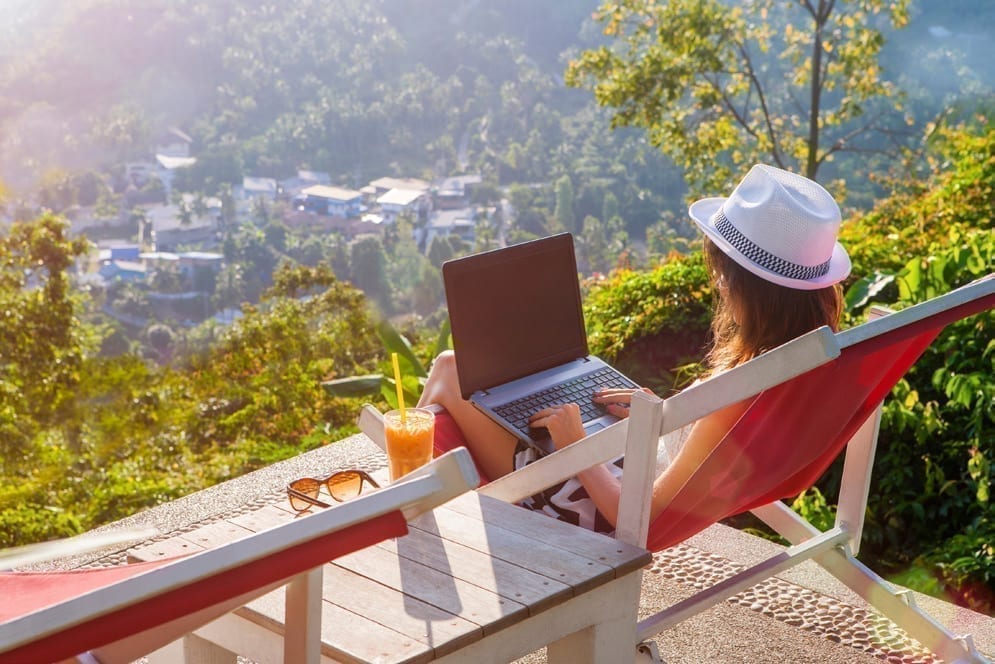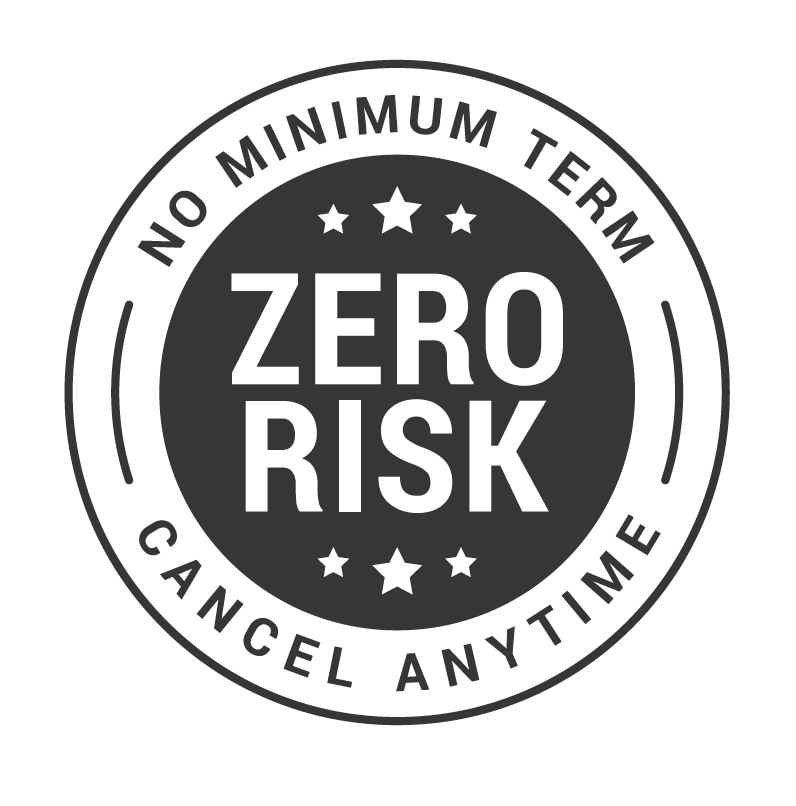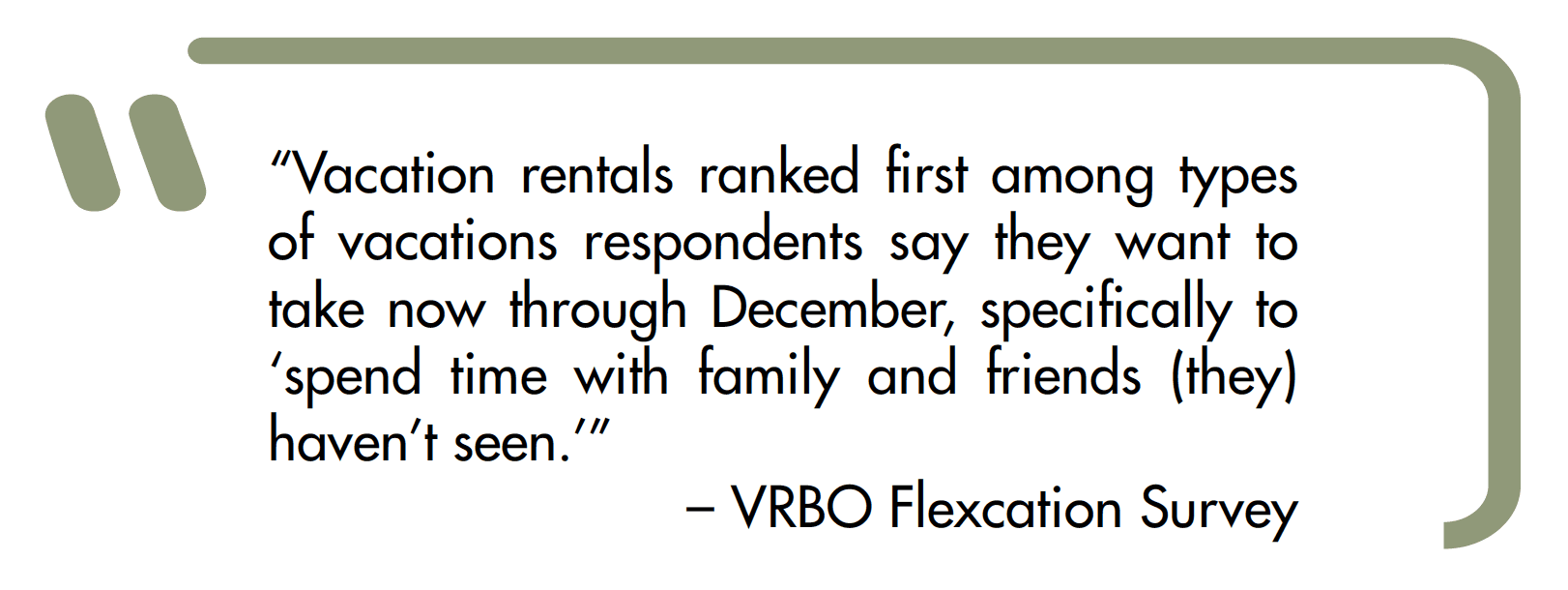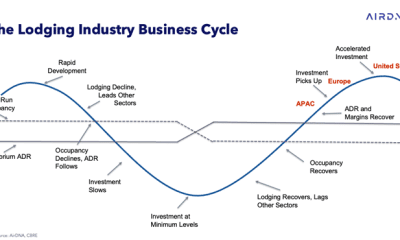
As vacation rental providers are experiencing firsthand, consumer behavior in the travel sector has changed dramatically in 2020.
In a recent interview, Google’s head of vertical travel search, Laura- Marie Arens, shared that vacation rental accommodations are recovering faster than hotels, adding, “Vacation rental is perceived safer, easier to practice social distancing, and you can manage your own food.” (“Google says private accommodation is recovering faster than hotels on a global scale,” Phocuswire, October 1, 2020)
However, that does not mean it is business as usual, as the short-term rental industry has experienced a whirlwind of change in customer behavior within that time.
If you have not already identified several emerging traveler avatars yet, you’d better hurry up, because second waves of the pandemic are being experienced around the world. New patterns in consumer behavior and ensuing new traveler avatars look like they may be here to stay, at least for now. Capitalizing on these changes will help rental managers and homeowners more quickly acclimate to this brave new world.
Emerging Vacation Rental Guest Avatars
Newbies
A new and widespread perception of the vacation rental as a safer choice for accommodation over traditional hotels has resulted in an influx of first-time vacation rental guests. Inexperienced guests coming from urban multifamily dwellings to stay in private vacation homes must learn to manage new amenities, such as pools and hot tubs. This creates a need for structured protocols to educate these “newbies,” as well as vendor maintenance protocols arising from more wear and tear. If expectations are properly set and met, these new customers can turn into repeat guests who give glowing referrals to their friends; and a recent study from Nielsen showed that 92 percent of travelers trust travel location referrals from people they know.
Digital Nomads
 The working world suddenly moved away from brick-and-mortar offices and schools to “work-from-home” and “web-learning” environments. With the ability to work from anywhere, a new group of vacation rental traveler was born, and longer stays have become common. However, this guest avatar has the need for high-speed internet, easy-access charging outlets, and workplace areas in the home. As a result, vacation rental providers are switching up marketing to showcase more in-demand amenities, such as home office spaces, free Wi-Fi, and high-speed ratings to meet the needs of the Digital Nomad.
The working world suddenly moved away from brick-and-mortar offices and schools to “work-from-home” and “web-learning” environments. With the ability to work from anywhere, a new group of vacation rental traveler was born, and longer stays have become common. However, this guest avatar has the need for high-speed internet, easy-access charging outlets, and workplace areas in the home. As a result, vacation rental providers are switching up marketing to showcase more in-demand amenities, such as home office spaces, free Wi-Fi, and high-speed ratings to meet the needs of the Digital Nomad.
Students Co-Living as Digital Nomads
We can include college and university students in the Co-Living Digital Nomad mix; they are socially banding together in their own bubbles to learn remotely by day and enjoy an incredible vacation rental by night. YOLO!
Digital Nomad Families on the Move, Including Pets
The rise of remote working and web-learning has created a new guest avatar: Digital Nomad Families opting to travel off the beaten path to rental homes, enjoying their time self-isolating, which includes bringing along the entire family, including their pets! A recent US Census Bureau’s American Housing Survey reveals “the share of households with kids stands at 27 percent, while the share of households with pets is at 68 percent.” (National Association of Realtors)
Don’t rule out this opportunity to increase your income through pet premiums of up to 30 percent the rental rate.
Family Bubbles
As families have had to sit back and take stock of what is important, there is an increase in demand for larger homes used for “family bubble” accommodations. This includes the extended family that has sheltered together.
First Responders and Frontline Workers
Typically, this avatar is most prevalent during weather crises such as hurricanes, earthquakes, and forest fires. The 2020 pandemic forced frontline workers to isolate from their families and also forced first responders arriving in high COVID-19 zones to look for vacation rentals for short- and long-term periods.
House Partiers
 The absence of nightclubs, bars, and event venues has opened up the eyes of event promoters to the possibility of using vacation rental homes as bases for their special events. These large house parties are often illegal under COVID-19 restrictions and sometimes result in disturbances. Rental managers and owners need to review their event policies (minimum age, maximum occupancy, parking, events allowed, damage deposits), and educate booking agents as to suspicious bookings (e.g., a renter booking a home, with a residence in the same city, for a short weekend stay). Smart home technology can help deter overoccupancy and parties with outdoor video cameras, noise monitors, and cell phone/Wi-Fi usage monitors.
The absence of nightclubs, bars, and event venues has opened up the eyes of event promoters to the possibility of using vacation rental homes as bases for their special events. These large house parties are often illegal under COVID-19 restrictions and sometimes result in disturbances. Rental managers and owners need to review their event policies (minimum age, maximum occupancy, parking, events allowed, damage deposits), and educate booking agents as to suspicious bookings (e.g., a renter booking a home, with a residence in the same city, for a short weekend stay). Smart home technology can help deter overoccupancy and parties with outdoor video cameras, noise monitors, and cell phone/Wi-Fi usage monitors.
New Demands
Demand for New Technology
Pandemic safety protocols, combined with a new generation of vacation rental guests, have increased the demand and requirements for new technology. Instant and mobile booking with flexible payment options on all booking platforms is now expected. In addition, on-the-ground technology, such as keyless entry, noise monitors, and size-of-party monitors.
Increased Demand for Cleaning Protocols and Accreditation
 Destination Analysts reported in its September 2020 survey that just 29.9 percent of average American travelers have confidence that travel is safe. Another national tracking poll survey revealed, “Lodging properties with cleaning and hygiene programs are sought by 55 percent of travelers, and mask-wearing requirements and/or social distancing policies are desirable for 47 percent of those planning their U.S. trips.” (“COVID-19 Travel Sentiment Study,” Longwoods International)
Destination Analysts reported in its September 2020 survey that just 29.9 percent of average American travelers have confidence that travel is safe. Another national tracking poll survey revealed, “Lodging properties with cleaning and hygiene programs are sought by 55 percent of travelers, and mask-wearing requirements and/or social distancing policies are desirable for 47 percent of those planning their U.S. trips.” (“COVID-19 Travel Sentiment Study,” Longwoods International)
The pandemic has forced both property managers and owners to come together with government agencies to develop actionable cleaning standards. Independent accreditation is on the rise, demonstrating to consumers and municipal and state governments that the vacation rental industry is professional and ensuring that vacation rentals are a safe option during a pandemic.
Note: Check out VRMA’s SafeHome Campaign.
Fluid Situations Increase Demand for More Flexible Cancellation Policies
 As community spread pops up in one area and is fully under control in other regions, travelers are looking for special COVID- 19-flexible cancellation policies as an easy way to protect their vacation investment.
As community spread pops up in one area and is fully under control in other regions, travelers are looking for special COVID- 19-flexible cancellation policies as an easy way to protect their vacation investment.
Price Comparison and Book Direct Demand Rising
The unemployment rate in the United States was an astonishing 14.7 percent in April 2020, flattening out to 7.9 percent in September, when it historically hovers around 3.5 percent. Money is tight, and the average American traveler is more price sensitive than ever. Similar effects are evident across the globe.
Price comparison shopping for vacation rentals is increasingly common. Once travelers decide on a rental home, they then search the internet for the best price for that home. Diversification in marketing portfolios will meet this demand with more distribution on book-direct regional sites, price aggregation sites, and business sites with rate/quote calculator information readily available.
Expect consumers to ask for discounts; they assume the vacation rental industry is desperate for bookings after government shutdowns of short-term rentals earlier in the first quarter.
New Behavior
Domestic Travel Skyrockets
Border closures are common in 2020, as are travel restrictions within countries, so consumer behavior has completely reverted to domestic travel. Savvy owners and managers have collected data on their client zip codes to produce heat maps so that they can change marketing and advertising strategies to suit each new client.
International Travel Remains Bleak
 The International Trade Commission‘s data reflect a 93.6 percent decrease in international nonresident traffic into the United States from March to August 2020. As the United States continues to battle the pandemic, the international traveler stays away.
The International Trade Commission‘s data reflect a 93.6 percent decrease in international nonresident traffic into the United States from March to August 2020. As the United States continues to battle the pandemic, the international traveler stays away.
International travel is based, of course, on country recuperation and border reopenings. Rental accommodation owners may start seeing increases in travel as things slowly start to open in COVID-19–low and COVID-19–free countries.
Shortened Booking Window
In regions where bookings typically take place one year in advance, short-term rental stakeholders are now experiencing more last-minute bookings. Travelers are looking at the latest COVID-19 statistics to see if they want to visit an area. The lesson here is not offering last-minute discounts too far in advance.
Travel Insurance
Consumers are looking for more detailed information on travel insurance such as how it works and what policies are covered during the pandemic. It is falling on the shoulders of the rental owner and manager to educate the traveler. Savvy stakeholders have incorporated some type of affiliate relationship into their booking processes to lower their risk and increase income in this category.
Longer Stay Demands
With the increase of the new digital nomad avatar, the demand for longer stays remains evident. Florida Rental By Owners, a regional book-direct listing site, experienced a huge increase in longer stay searches year over year from March to September 2020: a whopping 135 percent increase in searches for vacation rentals offering one-month stays or longer. Do not rule out longer stays, specifically for urban market recovery.
Traditional Seasons Become Blurred
Where the fall 2020 season would typically be considered low season for many areas, changes to home and school environments raise the demand for off-season travel. Interestingly, VRBO reported new family travel data this fall with a rise in the number of families booking trips in the third and fourth quarters. Florida Rental By Owners has also reported a 71 percent increase in inquiries year over year since vacation rentals reopened.

There is no doubt that the short-term rental industry has experienced disruptive changes to traveler avatars, preference, and behavior. 2020 has demanded an evolution among vacation rental stakeholders.
Rental guests are now looking for low-risk, predictable, and trusted local options. This includes the most important item on most of their lists: health and hygiene. The fear of potential quarantines and lockdowns alongside concerns about social distancing and masks will guide consumer behavior in the coming months. Innovation and new technology make up the impetus stemming from the COVID-19 pandemic.
The good news is that many of the challenges and changes in traveler behavior of 2020, when analyzed carefully, can be converted into opportunity—and ultimately the building blocks of a stronger future for the vacation rental industry as a whole.












Great article! I didn’t realize all of the underlying changes that happened throughout this year, I’m glad my rental agent took care of everything and stayed on top of the changes in guest behavior! Highly recommend these guys http://www.southernbellevacationrentals.com